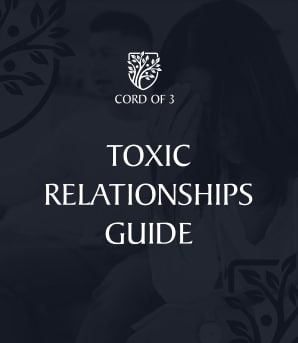
“In everything give thanks: for this is the will of God in Christ Jesus concerning you.”
1 Thessalonians 5:18 (KJV)
Have you ever looked in a broken mirror? The image is distorted. Even though the person looking into the mirror may be whole, the reflection through the broken shards looks disfigured. The view is misleading. The reflection is not a true representation of the person, but the brokenness skews our vision. While we know the image is a lie, we are still sometimes deceived by what we see.
Similarly, spiritual and emotional brokenness may skew our perspective. Sin, painful circumstances, hurt, loss, grief, disappointment, anxiety, depression, family dysfunction, and broken relationships often leave us feeling broken, discouraged, and angry. This can be especially hard during the Thanksgiving season. Thanksgiving is the praise we give to God for who He is and for all the wondrous works He has done. Giving thanks is easy to do when things are going well. It is easy to be thankful when our families are happy and whole, our emotions are level, and our relationships are healthy and strong. It’s during the broken seasons that giving thanks is more difficult.
The Bible has no shortage of broken people, and they offer us great examples of how to give thanks in all things. Throughout the psalms, we read that David cried out to God during persecution, in times of battle, and after sinful behavior, yet in his brokenness, he never failed to thank God for his goodness. When Job lost his property, his children, and his health, he questioned: “Shall we receive good at the hand of God, and shall we not receive evil?” (Job 2:10). Even in his losses, he was thankful to God, proclaiming, “The Lord gave, and the Lord has taken away. Blessed be the name of the Lord” (Job 1:21). When Nehemiah and the men of Jerusalem faced opposition while rebuilding the wall, Nehemiah encouraged the people not to fear but to “Remember the Lord, great and awesome…” (Nehemiah 4:14).
There are many other stories where people faced dire situations, God stepped in to change the situation, and the people offered thanks. Hannah was barren. She cried out to God, He gave her Samuel, and she worshiped the Lord (1 Samuel 1). Habakkuk was a prophet in a time of war, turmoil, and doubt, yet he praised God stating, “I will rejoice in the Lord, I will joy in the God of my salvation” (Habakkuk 3:18). Paul and Silas were thrown into prison for proclaiming salvation, but they prayed and sang hymns to God, and He delivered them (Acts 16:16-34).
These examples serve to guide us through our own broken stories. Like David, we face sin, persecution, and violence. Like Job, we encounter grief and loss. Like Nehemiah, we meet an enemy that comes to steal, kill, and destroy (John 10:10). Like Hannah, we grapple with seasons of barrenness or emptiness. Like Habakkuk, we live in a world filled with chaos and doubt. Like Paul and Silas, we are criticized for our faith. In a broken world, we sometimes become broken. However, by giving thanks to God, we are reminded of His goodness and His faithfulness, and our perspective changes. We no longer view things from a broken point of view but from a truth-filled perspective which leads to hope, peace, and freedom.
Romans 8:28 states, “And we know that all things work together for good to them that love God, to them who are the called according to his purpose.” No matter what challenges we face during our seasons of brokenness, we have this promise that God will use them for our good. The more we focus on giving thanks to our God, the more strength we will have to face the broken areas of our lives, for the joy of the Lord is our strength (Nehemiah 8:10). I am reminded of the story of the ten lepers who were healed. Ten were healed, but only one came back, fell at Jesus’ feet and thanked Him for his healing. Let us follow the example of the one who does not forget to thank God for his faithfulness – even in our brokenness.
Thanksgiving is a time for reflection. It is a time that we connect with God and others, share memories, and evaluate both the good and the bad parts of our lives. In my family, we have a Thanksgiving tradition of sharing memories from the year while we gather around the table. Some memories are funny; some of them are encouraging, and some of them are hard, but we share them all. Some years haven’t been so easy, but even in those difficult years of grief, loss, hardship, and pain, we have been able to share memories of when we saw the hand of God sustaining us and giving us the strength we needed to find healing in brokenness.
If you are in a broken season, don’t lose hope. Weeping may endure for a night, but joy comes in the morning (Psalm 30:5). While you are waiting for the morning, remember the goodness of God. Think back to past seasons of difficulty when God was faithful to bring you through the storm to find rest. Surround yourself with people who will encourage you spiritually (Colossians 3:16) and immerse yourself in scripture to find truth and hope for your situation. God’s promises are true, and His love is perfect, so give thanks to the Lord, for He is good. His mercy endures forever! (1 Chronicles 16:34).
